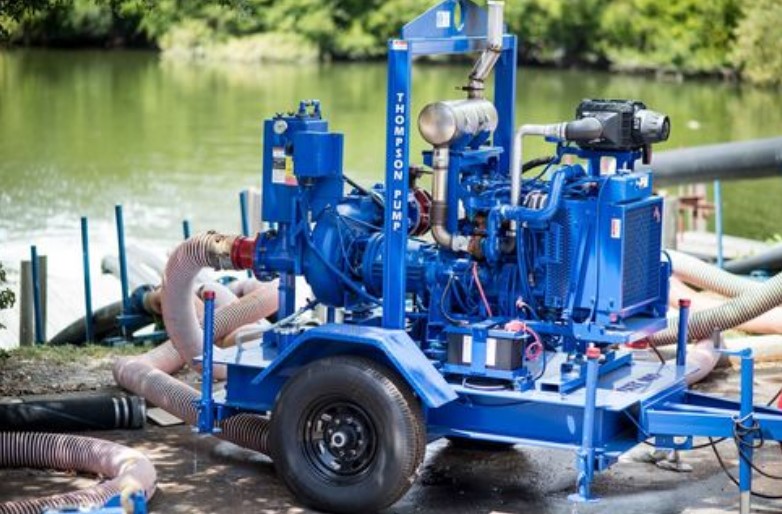
Hydraulic pumps are used on excavators, cranes, loaders, tractors, vacuum trucks, forestry equipment, graders, dump trucks, and mining machinery. They use an electric motor to drive the pump, which converts electrical energy into fluid pressure. The fluid pressure is then delivered at the required pressure and volume by hydraulic fluid to cylinders, actuators, and hydraulic motors. Hydraulic pumping has several advantages, including self-lubrication, ease of installation, and dependability.
Self-lubricating
The main advantage of Hydraulic Pumping is that the moving parts are lubricated under pressure. This ensures that bearings and other hydraulic system parts are correctly lubricated at all times and at all operating pressures. Therefore, self-lubricating bushings are the ideal choice for all types of pumps.
Historically, lubricated hydraulic cylinders and pistons were achieved through grease fittings or pressure lubrication. Both methods required separate oil pumps and splash oiling. In addition, the lubricant seals were located in the cylinder and were marginal. As a result, foreign particles often manage to pass through the seals and cause undesirable sponginess and binding. A self-lubricating cylinder would not be spongy but would lubricate both cylinders and pistons to run smoothly.
Easy To Install
In general, hydraulic pumps are easy to install, but there are a few things to consider. First, it is crucial to monitor your pump’s discharge pressure to ensure it’s functioning correctly. Many hydraulic pump failures are caused by insufficient fluid pressure, but you can quickly diagnose these issues with a discharge gauge. A glycerine-filled meter will help reduce needle vibration. In addition, you should purchase a cylinder that is made of high-quality material.
When choosing a hydraulic pump, you must first determine the type of fluid it will be pumping. Some liquids are corrosive, while others are non-corrosive. The manufacturer of your hydraulic pump will have recommended additives for reducing their corrosiveness. Esters, glycols, and water are examples of these substances. You should also consider the fluid’s operating temperature, flash point, and viscosity.
Reliability
Until now, engineers have not been able to determine the statistical probability distribution of random variables in engineering products. This study aims to identify the reliability of a hydraulic pump based on the mechanical seal and cylinder bore friction pair under the assumption of incomplete probability information. The reliability design model, which incorporates motion and load effects, will be presented.]
The reliability of hydraulic pumping is an essential component of the safe and effective operation of hydraulic systems. However, the reliability of a pump depends on other factors as well. For instance, hydraulic systems are most stable in cooler temperatures. Overheated hydraulic oil will lose its lubricity and become oxidized. This will result in increased wear of metal parts. For this reason, the ambient temperature of the pump is crucial. The ambient temperature should be regulated by using a liquid-to-liquid or forced-air cooler.
Safety
Employees need to wear the right gear, mainly when operating heavy machinery. Before using any hydraulic machine, operators should conduct a safety inspection to ensure they wear the proper protective gear. Additionally, operators should ensure that their surroundings are clear of debris and other slippery materials. In addition to wearing the appropriate safety gear, operators should also wear work gloves. Finally, the employer should provide proper training to ensure that all employees follow the correct protocol.
The safety of hydraulic pumping is of utmost importance. A malfunction can lead to a devastating disaster. Even if a business has all the necessary safety protocols in place, an employee using a hydraulic pump may be able to make a mistake and cause severe damage to the company.
Cost
Hydraulic pumps come in different price ranges, depending on their features and horsepower. Higher horsepower pumps are better suited for oil wells, while lower horsepower pumps are ideal for water wells. Choosing the right pump for your application will help you decide on the proper price range. However, a hydraulic pump is not necessarily the most expensive option. It can be costly and may not meet all your needs. You can also save money by choosing a modular pump with interchangeable parts.

